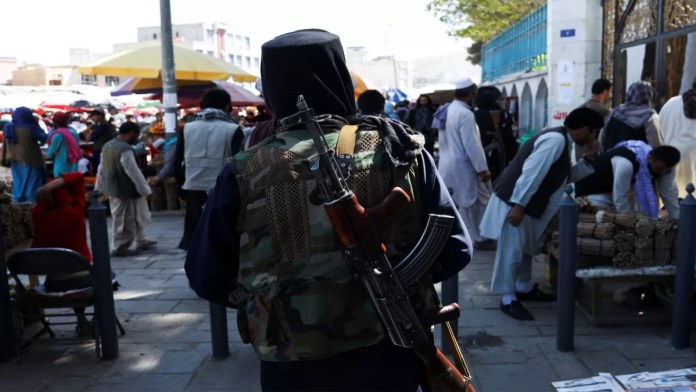A serious cross-border clash erupted between the Pakistan Army and Afghan Taliban-backed Tehreek-e-Taliban Pakistan (TTP) militants at the Chaman border crossing near Quetta this evening — the very day US Central Command Commander Gen Michael Kurilla visited Rawalpindi to meet new Pakistan Army Chief Gen Asim Munir. The Chaman border crossing was evacuated and a medical emergency declared, as more than 15 civilians were injured in heavy machine gun and mortar firing by both TTP fighters and Afghanistan Taliban.
The two sides clashed after Pakistan Army tried to carry out some renovation work along the border fence forcing, to which the TTP, as well as the Afghan Taliban, retaliated.
Earlier this month, seven Pakistanis were killed in cross-border shelling by the Taliban.
Islamabad’s bid to develop better relations with the Taliban regime is coming a cropper with a series of clashes erupting all along the border between the two countries. It seemed to be working when the Taliban occupied Kabul on 15 August 2021 with the help of then-Pakistan ISI chief Gen Faiz Hameed, a protégé of then-Prime Minister Imran Khan Niazi. But now, the radical Sunni Pashtun government has turned against its former handlers and started targeting Pakistan.
Meanwhile, the Taliban’s rise to prominence in Afghanistan has enthused Islamic radicals in Pakistan, with a large section of Pakistani people wanting their already Islamic state to be turned into an emirate governed by the Shari’ah, like the regime in Afghanistan. Rather than the Taliban pushing the TTP for a compromise with Rawalpindi and an indefinite ceasefire, the radical extremist group attacked Pakistani border areas on 28 November and urged its followers to carry out attacks in the whole of Pakistan.
Readers may recall that Khan Niazi had endorsed the Taliban occupation of Afghanistan, calling it “throwing off their shackles of slavery” under two decades of US occupation, but the Sunni Pashtun terrorist group-turned-government is locking horns with Islamabad, refusing to recognise the British-made Durand Line as the international border between the two Islamic territories. The Taliban says this border divides the Pashtun people and hence they want Pashtun-dominated areas on the border to be under the administration of Kabul.
As the Taliban government refuses to act as an extension office of Rawalpindi, Pakistan has not yet officially recognised the ‘Emirate of Afghanistan’, notwithstanding Islamabad’s promotion and defence of the Sunni group for the past three decades. The dichotomy in the Afghanistan-Pakistan relations is reflected by the fact that Rawalpindi-backed terror groups like so-called Islamic State of Khorasan Province (ISKP) and others constantly try to destabilise the Taliban government in Kabul.
The Pakistani radicals also try to spread instability and radicalisation in the Central Asian Republics, troubling Russia as well.
While India has reached out to the Taliban, honouring its historic commitment to help Afghans, regardless of the regime, the game of strategic depth by Pakistan against India has gone awry, as the Sunni Pashtun force is not interested in fighting proxy wars for Rawalpindi headquarters. With Pakistan’s western borders witnessing strife between Muslim extremists of the TTP and Afghan Taliban fold on one side and the ISKP and Pakistan Army on the other, Islamabad’s plan has gone awry.



You must log in to post a comment.